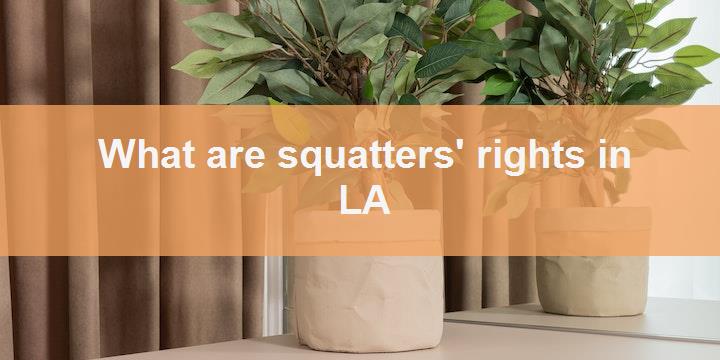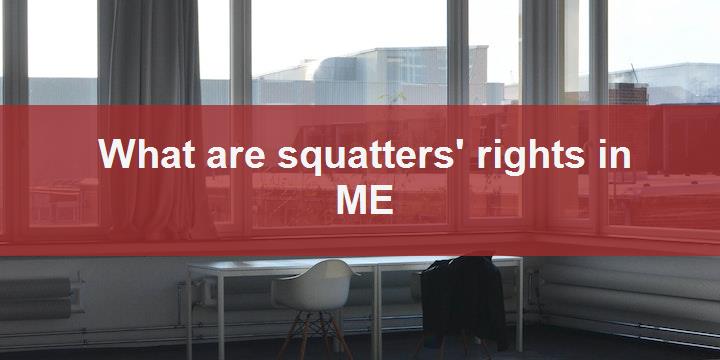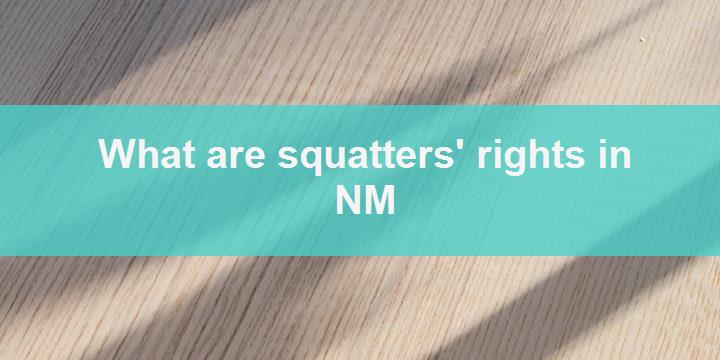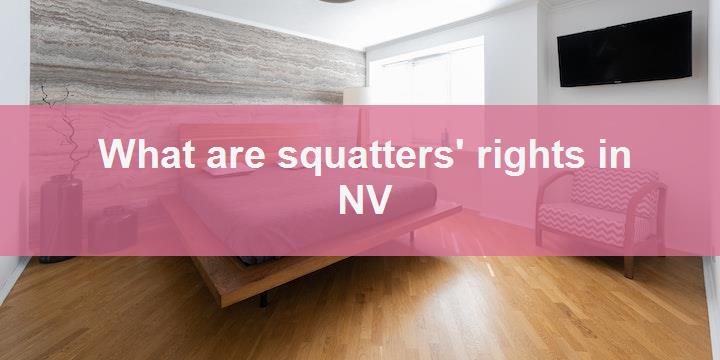What are squatters’ rights in Louisiana?
When it comes to squatters’ rights in Louisiana, there are several important things to keep in mind. First of all, it’s important to understand that squatters are people who are living on a property without the owner’s permission. In Louisiana, there are specific laws in place that protect squatters in some cases. For example, if a squatter has been living on a property for a certain amount of time, they may be able to claim ownership of the property. Additionally, there are certain requirements that must be met for a squatter to have any legal rights to a property. Ultimately, it’s important to understand the laws and regulations surrounding squatters’ rights in Louisiana if you are a property owner or a squatter yourself.
What is the squatting/squatter?
Firstly, Squatting, also known as occupying vacant buildings, is a way of life for some people. It is a practice that has been around for a long time, and it has become more common in recent years due to the increased cost of living.
Secondly, squatters are individuals who occupy vacant properties without the owner’s permission. They are typically drawn to abandoned or unused buildings, which they then claim as their own. For example, a squatter may break into an abandoned factory, make minor repairs, and then start living there.
Thirdly, while squatters may be viewed as criminals or ne’er-do-wells by some, they often see themselves as activists fighting for affordable housing. Regardless of one’s opinion, squatting raises many important questions about property rights, homelessness, and the responsibilities that come with owning a property.
What is Adverse posession in Louisiana?
Adverse possession in Louisiana is a legal concept that allows a person to claim ownership of property that has been possessed and used without permission for a certain period of time. To be eligible for adverse possession, the person must openly and continuously use the property for a minimum of 10 years without the owner’s consent or objection. Moreover, the use must be hostile, meaning that it’s without any permission, permission that has expired or permission that was granted illegally. Once the eligibility for adverse possession is established, the claimant can petition the court to have title to the property transferred to their name. However, adverse possession cases are complex and require legal expertise for a successful outcome.
Is it legal to squat in Louisiana?
Firstly, it is important to note that squatting is not technically legal anywhere in the United States. However, Louisiana has some unique laws that can make the situation more complicated. For example, there are adverse possession laws that allow someone who has been living on a property for a certain amount of time without the owner’s knowledge to claim legal ownership. This can sometimes be used as a defense if someone is caught squatting. Additionally, eviction processes can vary depending on the type of property and whether the squatter has established residency. Overall, while the legality of squatting in Louisiana may not be clear-cut, it is generally not advised to engage in this behavior.
Can police remove squatters in Louisiana?
Firstly, in Louisiana, squatters are considered to be individuals who occupy someone else’s property without their permission. If a property owner wants to get rid of the squatters, they must follow the legal process.
Secondly, before taking any action, the property owner must provide written notice to the squatters. If the squatters do not leave within a specified period, the property owner can file a lawsuit to evict them. Thirdly, if the court orders the eviction, the property owner can request the assistance of the police to remove the squatters. However, it’s important to note that the police will only get involved if the eviction has been legally ordered by a court. Therefore, it is crucial for property owners to follow the legal process as it is the only way to remove squatters in Louisiana.
How to evict squatter in Louisiana?
Firstly, it is important to understand that Louisiana law recognizes two types of squatters: those who have entered without permission and those who had permission but have overstayed their welcome. In the case of the former, the property owner has the legal right to evict them. But before starting the eviction process, it is necessary to provide written notice to the squatter, specifying the time frame within which they need to vacate. If the squatter fails to leave, the owner can file an unlawful detainer suit, which will allow them to pursue a court order requiring the squatter to vacate. However, this can be a time-consuming process, and it is advisable to seek the counsel of a qualified attorney who can help navigate the legal proceedings. Finally, it is important to note that eviction laws and procedures can vary by state and jurisdiction, so it is crucial to consult local laws and regulations when dealing with squatters.
FAQ
Q: What are squatters’ rights in Louisiana?
A: Squatters’ rights, or adverse possession, in Louisiana allow people who have occupied and maintained possession of someone else’s property for a certain period of time to obtain legal ownership of that property under certain circumstances.
Q: How long does someone have to occupy a property to claim adverse possession in Louisiana?
A: In Louisiana, someone must occupy a property continuously for at least ten years in order to claim adverse possession.
Q: What is required for a squatter to claim adverse possession in Louisiana?
A: In order for a squatter to claim adverse possession in Louisiana, they must show that they have openly and notoriously occupied the property for the required ten-year period, that they have possessed the property exclusively and continuously during that time, and that they have taken care of the property and prevented others from occupying it.
Q: Can squatters’ rights be challenged in Louisiana?
A: Yes, squatters’ rights can be challenged in Louisiana through legal action by the rightful owner of the property.
Q: What are the potential consequences of claiming adverse possession in Louisiana?
A: While claiming adverse possession may result in acquiring legal ownership of the property, there may be legal consequences and potential disputes with the rightful owner of the property.
Q: Is it legal to squat on government-owned land in Louisiana?
A: No, it is not legal to squat on government-owned land in Louisiana, as the government has the right to control access to and use of such lands.
Q: Can a property owner in Louisiana take action to prevent someone from squatting on their property?
A: Yes, a property owner in Louisiana can take action to prevent someone from squatting on their property by taking legal action against the squatter, such as filing for eviction, trespassing, or breach of contract.
Q: Are there any exceptions to the ten-year rule for claiming adverse possession in Louisiana?
A: Yes, there are some exceptions to the ten-year rule for claiming adverse possession in Louisiana, such as in cases where the squatter obtained possession of the property by fraud, deceit, or violence.
Sources
As an AI language model, I do not have the ability to browse the internet and determine the current status of web page links. However, these are some official sources that may provide information on squatters’ rights in Louisiana:1. Louisiana State Legislature – https://www.legis.la.gov/legis/Law.aspx?d=78426
Also Reading
Top pros and cons of living in Wilmington
What is the average rent in Fort Collins?
Top things to know before moving to Missouri




